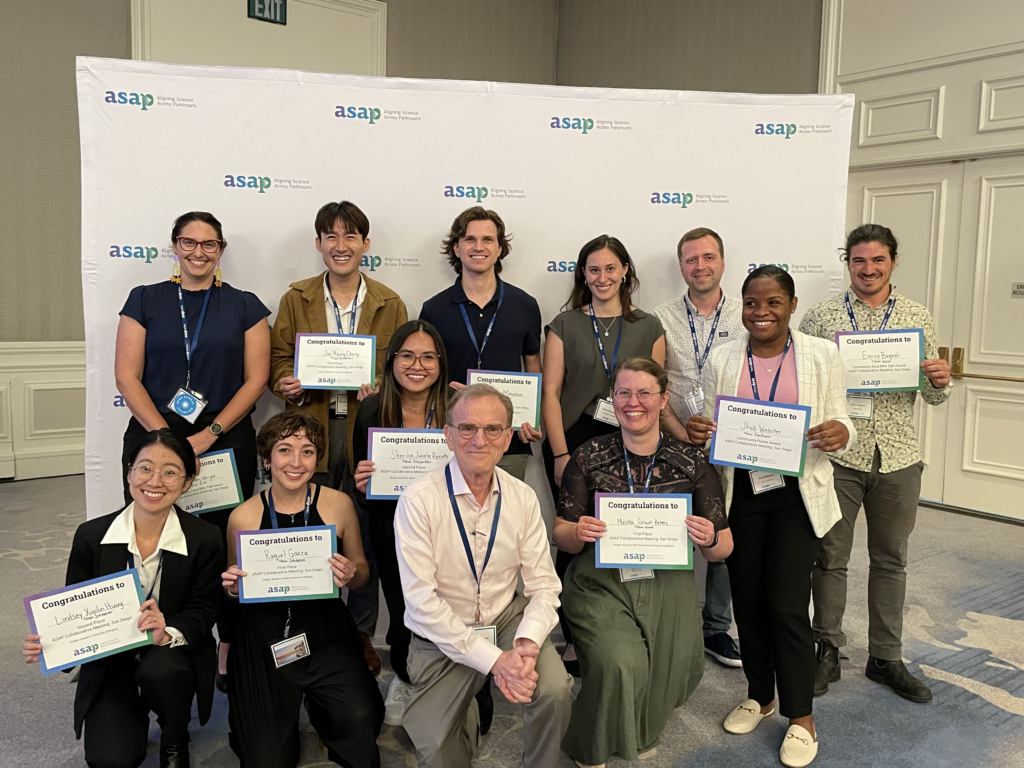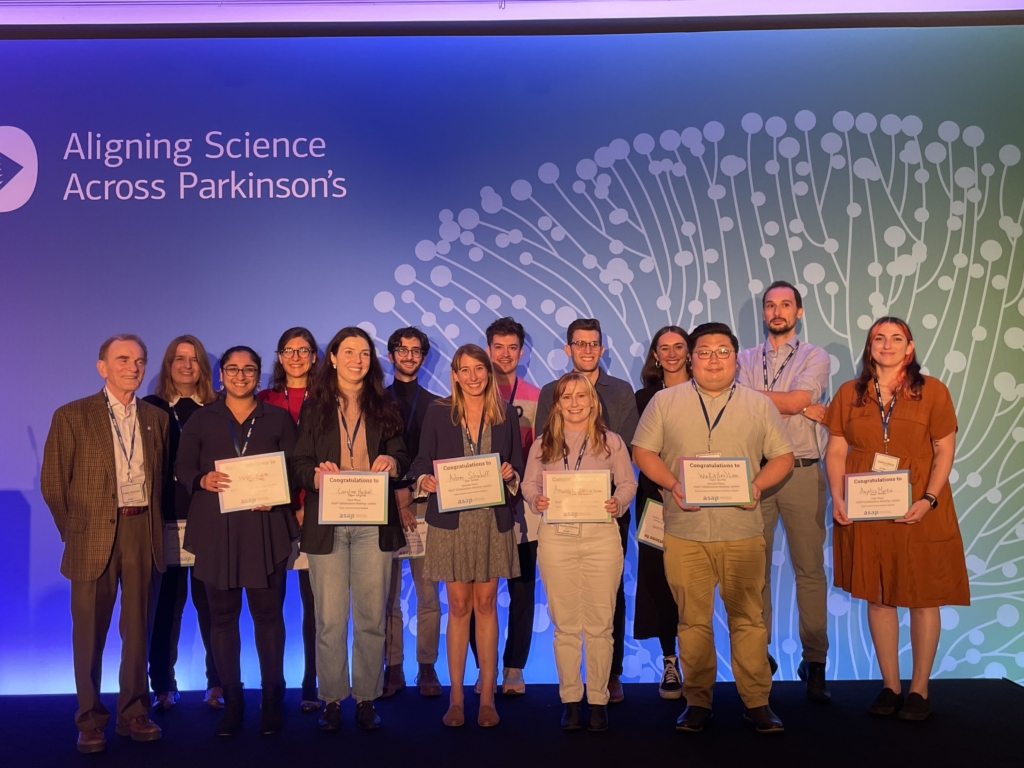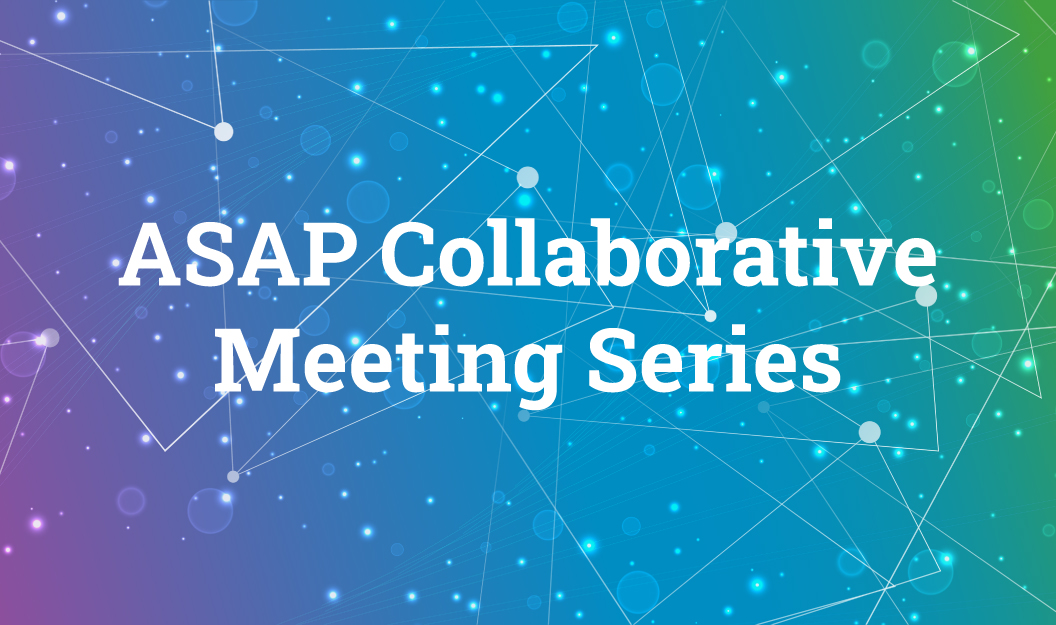At ASAP, our commitment to collaboration and transparency in research practices, along with creativity and flexibility, are essential principles for improving research outcomes. Bold advances require researchers to step outside of their niches, engage in meaningful discussions, and listen to diverse perspectives about the state of the field. This framework guided our in-person gatherings in 2023.
A New Way to Convene
This year, we held two Collaborative Meetings for members of the Collaborative Research Network (CRN) – in San Diego in July and London in October – to collectively tackle the emerging themes and controversial topics within the Parkinson’s disease (PD) field. In addition to core leadership from each CRN team, we included trainees, which was a welcome change from previous gatherings. In doing so, we created a space for idea exchange that spanned career levels, disciplines, and continents. Attendees made connections with other members of the network, shared their work, and sparked new ideas.
The result: an atmosphere abuzz with spirited discourse and aligned pursuit of a common goal. And with the inclusion of a keynote address from individuals living with PD in each convening, our scientific community left motivated to move the needle forward in our understanding of PD.
“There’s a movement for those living with Parkinson’s. All you have to do to join the movement is move.” – Jimmy Choi, Keynote Speaker, San Diego
Collaborative Meeting: San Diego (July 24-28, 2023)
The ASAP Collaborative Meeting: San Diego convened nearly 250 members of the CRN together, including principal investigators, project managers, and trainees.
Trainees – graduate students, postdoctoral fellows, and scientific staff who actively conduct the experimental studies that are designed to answer fundamental questions pertaining to PD – accounted for over 40% of attendees. One participant commented on the benefits of this new format: “Networking is huge. Any way to facilitate more [networking] is beneficial. Having trainees at the meeting was great. They bring fresh energy and will bring that back to their labs.”
All trainees presented their work at a poster session, and a select number were invited to give a Data Blitz Talk, a short 5-minute talk highlighting their research. As one attendee wrote, “It was fantastic being part of a meeting where poster sessions were engaged with so thoroughly and by all those who were present.” The following participants received awards for their work that they presented at the meeting:
Prizes

- First Place in PD Functional Genomics: Edward Bentea (Team Vangheluwe)
- Second Place in PD Functional Genomics: Tamar Basiashvili (Team Reck-Peterson)
- Third Place in PD Functional Genomics: Melissa Grant-Peters (Team Wood)
- First Place in Neuro-Immune: Connor Monahan (Team Sulzer)
- Second Place in Neuro-Immune: Sherilyn Junelle Recinto (Team Desjardins)
- Third Place in Neuro-Immune: Raquel Garza (Team Jakobsson)
- First Place in Circuitry: Jin Hyung Chung (Team Gradinaru)
- Second Place in Circuitry: Lindsey Xiaolin Huang (Team Surmeier)
- Third Place in Circuitry: Jacob Nadel (Team Edwards)
- Community Poster Award: Jhodi Webster (Team Kordower) and Ning Wang (Team Kaplitt)
- Community Data Blitz Talk Awards: Enrico Bagnoli (Team Alessi) and Courtney Wright (Team Kirik)
In a post-meeting survey, 88% of respondents said they identified new potential collaborations, while 76% reported that they will reshape some of their research plans based on the discussions held at the San Diego meeting. In the words of one of our attendees, “Overall, the conference was really stimulating and I returned to the lab with new knowledge, new ideas to try, and new tools to engage with.”
Collaborative Meeting: London (October 1-5, 2023)
The overall goal of providing a space to engage the CRN in discussing the controversial topics and emerging themes in Parkinson’s disease were consistent across both the San Diego and London meetings. The major difference? The attendees. The London meeting brought together 206 attendees, including principal investigators, project managers, and trainees, the majority of whom had not attended the San Diego meeting.
Assembling a new group of researchers, in a place where dialogue was encouraged from investigators and trainees alike, allowed the community to learn about new perspectives and ideas for addressing the knowledge gaps that remain in understanding PD. To further the spread of knowledge, all trainees participated in a poster session, which allowed them to share their exciting findings with attendees. As one participant said, “What stood out the most was engaging with trainees at the poster session. Understanding their research work and through processes as they tackle key questions is incredibly insightful.”
Additionally, a few trainees were selected to participate in Data Blitz talks, where they were allotted 5 minutes to describe their work and how their findings impact the PD field. The following participants received awards for their work that they presented at the meeting:
Prizes

- First Place in PD Functional Genomics: Amanda Bentley de Souza (Team De Camilli)
- Second Place in PD Functional Genomics: Wai Kit (Leo) Lam (Team Hurley)
- Third Place in PD Functional Genomics: Chiara Pavan (Team Kirik)
- First Place in Neuro-Immune: Anjelica Martin (Team Hafler)
- Second Place in Neuro-Immune: Aubrey Schonhoff (Team Sulzer)
- Third Place in Neuro-Immune: Christin Weissleder (Team Schapira)
- First Place in Circuitry: Shinil Raina (Team Cragg)
- Second Place in Circuitry: Emanuel Lopes (Team Cragg)
- Third Place in Circuitry: Caroline Haikal (Team Kaplitt)
- Community Poster Award: Daniel Dautan (Team Kaplitt) and Cole Sitron (Team Harper)
- Community Data Blitz Talk Awards: Jack Collier (Team Desjardins) and Julia Chocarro (Team Vila)
In a post-meeting survey, 92% of respondents identified new potential collaborations as a result of the London meeting; and 76% of respondents indicated that the information they learned at the London meeting has caused them to reshape some of their own research plans.
What’s Next
So where do we go from here? The members of the CRN will continue to work diligently to uncover new findings, fill in the knowledge gaps, and accelerate discovery with the goal of informing the path to a cure for PD.
As Carroll Siu, London keynote speaker, said, “Research opens doors to our understanding of Parkinson’s. Whatever the outcome, we must take control of our own destiny by translating research findings into action that could make a difference to our lives.”


